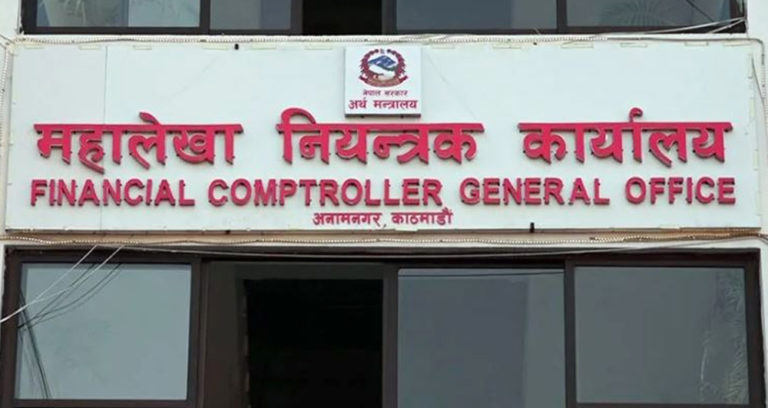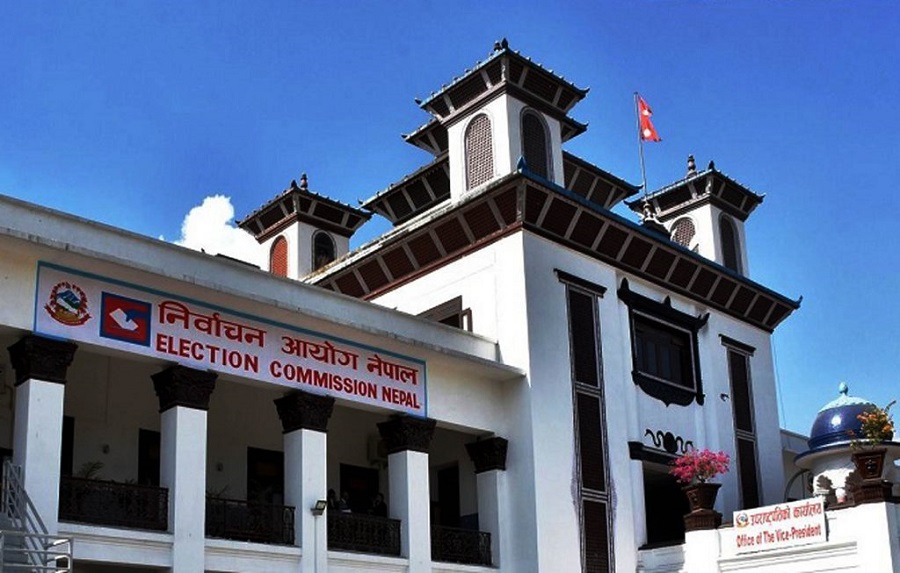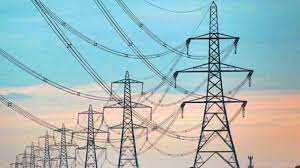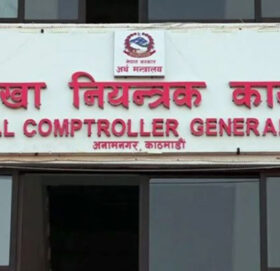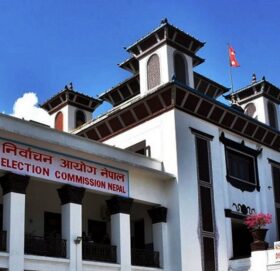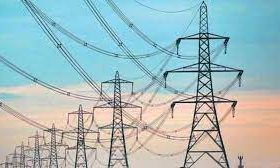Reshaping the Narrative Nigeria news today signals pivotal shifts in investment landscapes and geopo
- शनिबार, कार्तिक ३०, २०८२

- Reshaping the Narrative: Nigeria news today signals pivotal shifts in investment landscapes and geopolitical strategy.
- Foreign Investment and Economic Diversification
- Geopolitical Alignment and Regional Influence
- Strengthening Ties with African Nations
- Expanding Partnerships in Asia
- Navigating Complex Regional Dynamics
- Infrastructure Development as a Catalyst for Growth
- Challenges and Opportunities in the Energy Sector
- Renewable Energy Potential
- Addressing Refining Capacity Constraints
- The Role of Natural Gas
- The Fintech Revolution and Financial Inclusion
Reshaping the Narrative: Nigeria news today signals pivotal shifts in investment landscapes and geopolitical strategy.
Recent developments in Nigeria paint a complex picture of economic aspiration and strategic recalibration. Understanding the dynamic shifts occurring within the nation’s investment climate and geopolitical positioning requires a nuanced perspective, particularly considering the recent influx of foreign direct investment and evolving regional alliances. Today news focuses on these pivotal changes, indicating a potential reshaping of Nigeria’s role on the global stage
This evolving landscape isn’t without its challenges. Security concerns, infrastructural deficits, and governance issues continue to present obstacles to sustained growth. Nonetheless, the proactive measures undertaken by the government and the demonstrated resilience of the private sector suggest a trajectory of increasing economic prominence. It’s a landscape ripe with opportunity, but also demanding careful assessment.
Foreign Investment and Economic Diversification
Nigeria is witnessing a surge in foreign direct investment, driven primarily by sectors outside of traditional oil and gas. A renewed focus on agriculture, fintech, and renewable energy is attracting international capital, signalling a desire for a more diversified economy. This diversification aims to reduce reliance on crude oil revenue and build a more sustainable economic future. Opportunities within these sectors are expanding rapidly, presenting attractive prospects for investors seeking high-growth potential.
| Fintech | 1.8 | 22.5 |
| Agriculture | 2.5 | 18.0 |
| Renewable Energy | 1.2 | 25.0 |
| Manufacturing | 0.8 | 15.0 |
Geopolitical Alignment and Regional Influence
Nigeria’s foreign policy is undergoing a subtle but significant shift, emphasizing stronger ties with emerging economies and a more assertive role in regional affairs. Increased collaboration with nations across Africa and a strengthening of relationships with partners in Asia are reshaping Nigeria’s geopolitical footprint. This proactive diplomacy is aimed at bolstering economic partnerships, promoting regional stability, and enhancing Nigeria’s influence on the international stage. The nation’s ability to navigate complex regional dynamics will be crucial to maintaining its increasing influence.
Strengthening Ties with African Nations
Nigeria’s commitment to intra-African trade and collaboration is becoming increasingly apparent. The African Continental Free Trade Area (AfCFTA) presents significant opportunities for Nigeria to expand its export markets and boost economic growth. Furthermore, Nigeria is actively involved in initiatives aimed at promoting regional peace and security. This proactive engagement demonstrates a dedication to fostering a stable and prosperous African continent, positioning Nigeria as a natural leader. The implementation of AfCFTA agreements will require the removal of trade barriers and the harmonization of regulatory frameworks, presenting both opportunities and challenges.
Expanding Partnerships in Asia
Recognizing the growing economic importance of Asia, Nigeria is actively seeking to deepen its partnerships with key players in the region. Enhanced trade relations, investment flows, and cultural exchanges are fostering stronger economic cooperation. This outreach aims to diversify Nigeria’s economic relationships and reduce its dependence on traditional Western markets. Strategic partnerships with countries like China and India are viewed as integral to unlocking Nigeria’s economic potential. These partnerships often involve infrastructure development projects and technology transfer programs.
Navigating Complex Regional Dynamics
Despite its growing influence, Nigeria faces challenges in navigating the complex political landscape of West Africa. Ongoing security concerns, political instability in neighboring countries, and the threat of terrorism pose significant obstacles to regional integration. Successfully addressing these challenges will require a multifaceted approach, encompassing diplomatic initiatives, security cooperation, and economic development programs. Stabilizing the region is not only essential for Nigeria’s security but also for its economic prosperity. A collaborative approach, involving regional organizations and international partners, is crucial for achieving lasting peace and stability.
Infrastructure Development as a Catalyst for Growth
Significant investments in infrastructure development are aimed at alleviating bottlenecks hindering economic growth. Projects focusing on transportation, energy, and telecommunications are crucial for boosting productivity and attracting foreign investment. The government recognizes the vital role of infrastructure in fostering a conducive business environment and improving the quality of life for citizens. Addressing infrastructure deficits is paramount to unlocking Nigeria’s full economic potential. However, successful implementation of these projects requires efficient project management, transparent procurement processes, and adequate funding.
- Road network expansion: Connecting key economic hubs and facilitating trade.
- Power generation and distribution: Addressing chronic electricity shortages.
- Rail network modernization: Enhancing freight transport and passenger mobility.
- Digital infrastructure development: Expanding broadband access and promoting digital literacy.
Challenges and Opportunities in the Energy Sector
Nigeria’s energy sector faces a complex mix of challenges and opportunities. While rich in oil and gas reserves, the country struggles with inadequate refining capacity, frequent power outages, and a reliance on fossil fuels. A transition towards renewable energy sources, coupled with investments in energy efficiency, is crucial for achieving sustainable energy security. Overcoming these challenges will require strategic policy reforms, private sector investment, and technological innovation. The development of a diversified energy mix will enhance Nigeria’s resilience to fluctuations in global oil prices.
Renewable Energy Potential
Nigeria possesses substantial renewable energy resources, including solar, wind, and hydro power. Harnessing these resources offers a pathway towards a cleaner, more sustainable energy future. Government incentives and private sector investment are driving the development of renewable energy projects across the country. Despite the potential, challenges remain, including high upfront costs, limited grid infrastructure, and regulatory hurdles. A supportive policy framework and innovative financing mechanisms are essential for unlocking the full potential of renewable energy in Nigeria. The benefits extend beyond environmental sustainability, creating jobs, stimulating economic growth, and enhancing energy access.
Addressing Refining Capacity Constraints
Nigeria’s reliance on imported refined petroleum products is a significant drain on its foreign exchange reserves. Addressing the shortage of refining capacity is a top priority for the government. The ongoing rehabilitation of existing refineries and the construction of new ones are expected to increase domestic refining capacity and reduce dependence on imports. However, these projects face delays and cost overruns, highlighting the need for efficient project management and transparent procurement processes. A robust refining sector will not only ensure energy security but also create employment opportunities and boost economic growth. Investing in skilled workforce development is also crucial for the success of these projects.
The Role of Natural Gas
Natural gas presents a significant opportunity as a transition fuel and a potential revenue source. Nigeria holds vast natural gas reserves, largely untapped. Developing domestic gas infrastructure, promoting gas-to-power projects, and encouraging gas exports are vital for maximizing the economic benefits of this resource. Utilizing natural gas for power generation can reduce reliance on diesel, enhance energy efficiency, and lower carbon emissions. Investing in gas processing facilities and pipelines is essential for unlocking the potential of the natural gas sector. However, environmental concerns regarding gas flaring need to be addressed through stringent regulations and technological solutions.
The Fintech Revolution and Financial Inclusion
Nigeria is at the forefront of the fintech revolution in Africa, driven by a young, tech-savvy population and a growing demand for financial services. Mobile money, digital payment platforms, and innovative lending solutions are expanding financial inclusion and transforming the financial landscape. This rapid growth in fintech is creating new opportunities for entrepreneurs, investors, and consumers alike. However, regulatory challenges and concerns about cybersecurity need to be addressed to ensure the long-term sustainability of the fintech sector. Promoting responsible innovation and protecting consumer interests are essential for fostering trust and confidence in digital financial services.
- Mobile Money Platforms: Increasing access to financial services for the unbanked population.
- Digital Payment Solutions: Reducing reliance on cash and promoting efficiency in transactions.
- Peer-to-Peer Lending: Providing alternative financing options for individuals and businesses.
- Insurtech Innovations: Expanding access to insurance products and services through digital channels.
| Mobile Payments | 4.5 | 15 |
| Digital Lending | 2.1 | 20 |
| Insurtech | 0.7 | 18 |
| Remittances | 24.0 | 8 |
Nigeria’s evolving economic and geopolitical landscape presents both challenges and opportunities. Proactive policy reforms, strategic investments, and a commitment to sustainable development are crucial for unlocking the nation’s full potential. The ongoing shifts in investment patterns and geopolitical alignment signal a determined effort to reshape Nigeria’s narrative on the global stage.

Aventure-se na trilha frenética e veja se consegue guiar a galinha até o ovo dourado em jogo chicken

Beyond the Climb Master Crash Games, Leverage an aviator predictor, and Witness Provably Fair Live B

Resurgent Challenges and Emerging Opportunities Define the Current nigeria news Landscape, Fueling I



